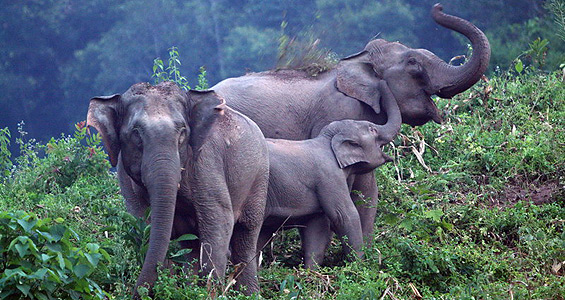Every once in a while you come across a book so original and thought-provoking that you make you gasp in admiration. The Retreat of the Elephants: An Environmental History of China by Mark Elvin is such a book.
It turned up when I was doing a search about the difficult relation between humans and forests over history as part of the research for my next non-fiction project, Road through Time. A little time trolling library catalogues and data bases and I came up with a fascinating reading list that I'm currently working my through. (Another good one is Deforesting the Earth, From Prehistory to Global Crisis: An Abridgement by Michael Williams, whose title has got to be an inside joke since it has 561 pages.)
Elvin is from New Zealand, and perhaps that South Pacific vantage point has allowed him to write a history of the rise of intensive agriculture in China and the accompanying destruction of forests, water courses and grasslands. He takes as his starting image the herds of elephants which five thousand years ago roamed woods around Beijing--apparently there are many caches of the beasts' bones in that part of China. The huge herbivores were hunted by the elite, but that was not what did them in. Rather, they were the type of pachyderms which could not survive outside forests, and as the Chinese vigorously deforested the land, they retreated until now there are only a few left on the border with Myanmar.
What happened next, Elvin recounts with the same striking storyteller's skills. What is more he quotes extensively from Chinese poetry to bring the rest of his history to life. While it appears that he greatly regrets what the Chinese have done to their land over the last five thousand years, he also shows much sympathy for the reasons that lie behind their desire to make every inch productive.
I'm no Asian scholar so I can not critique either his sources or his analysis, but the 50 pages or so of notes and bibliography at the end of the book attest to Elvin's seriousness and his academic credentials.
If you are interested in either China or the environment or Chinese literature, this book is a must-read.
The picture, by the way, was taken in 2008 in a Chinese nature reserve and published on Aljazeera.

No comments:
Post a Comment